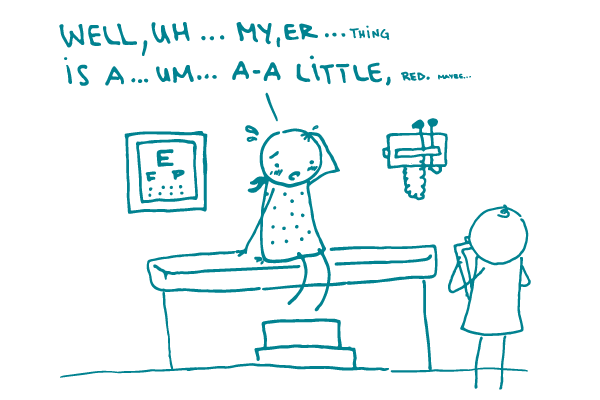
Have you ever clammed up while expressing concern about a loved one’s health? Or felt embarrassed when talking with the doctor about bodily functions? Or dreaded having to explain to the receptionist why you need to see the doctor ASAP?
It’s not just you. We think it’s safe to say most of us have. And that’s because talking about personal health issues can be anxiety inducing (not to mention off-limits in polite conversation!) — so we tend to avoid it. And that can get in the way of health.
That’s why we want to draw your attention to a format we ❤ for talking about tough issues: conversation tools. Creating a conversation tool gives people the language they need to communicate effectively about a challenging health topic. And that can make a really big difference.
Conversation tools are different depending on what you’re trying to accomplish, but they all offer questions or statements to use when talking about a health issue.
For example, conversation starters can help someone find the right words to talk with a loved one. Offering questions for the doctor can help a person communicate better with a provider. And more comprehensive step-by-step conversation guides are great for a person preparing for an in-depth, challenging discussion.
The next time you’re developing health information, try incorporating a conversation tool. We think your audiences will ❤ it.
The bottom line: Talking about health isn’t easy — help people communicate better by giving them the language they need.
Browse recent posts